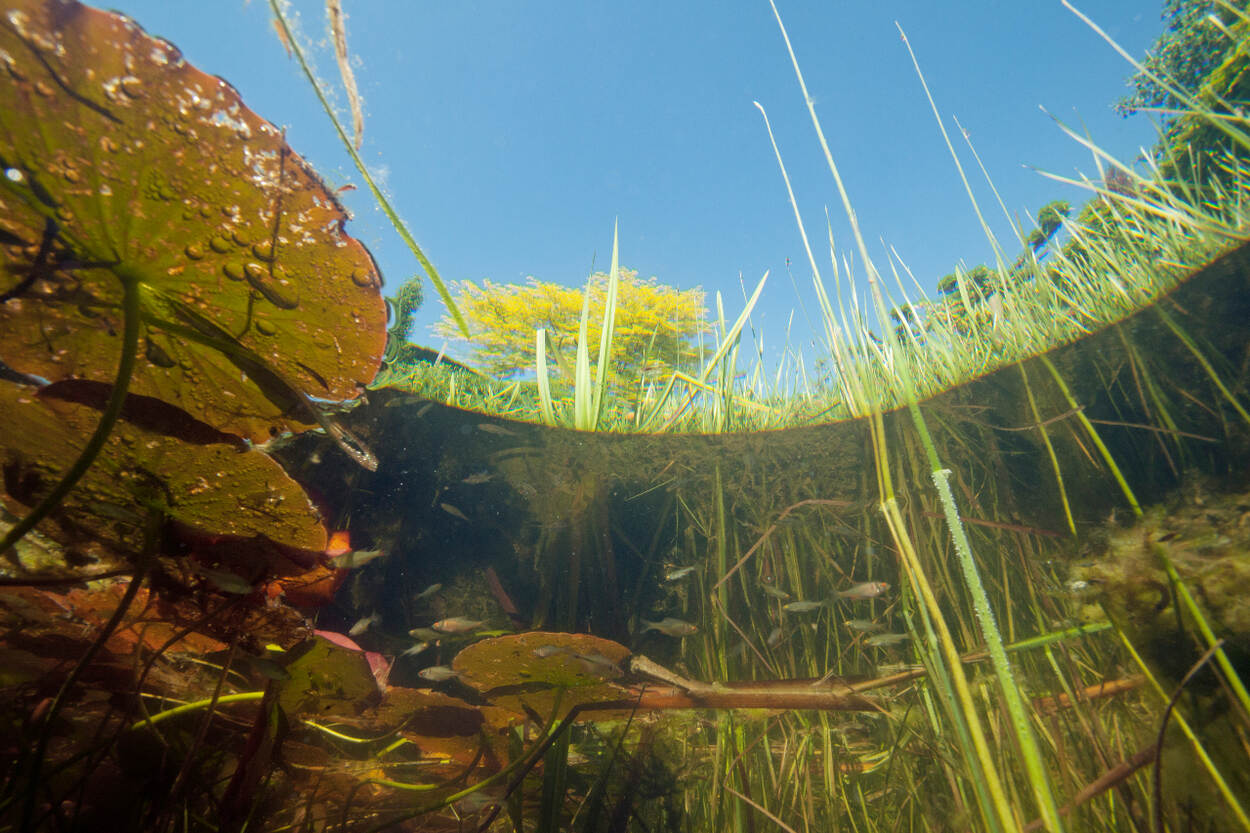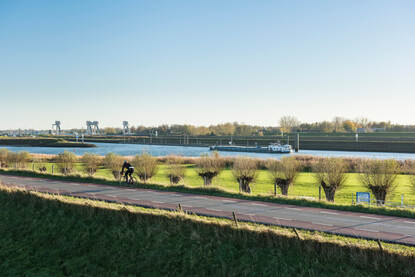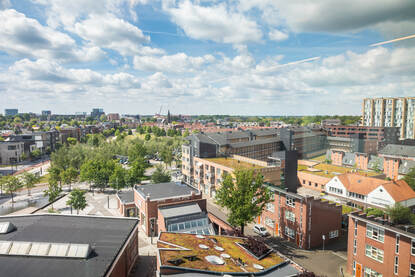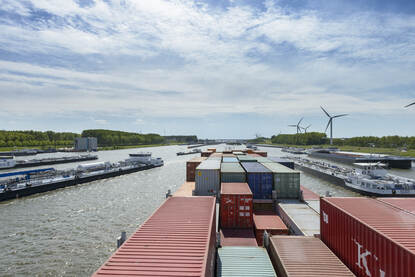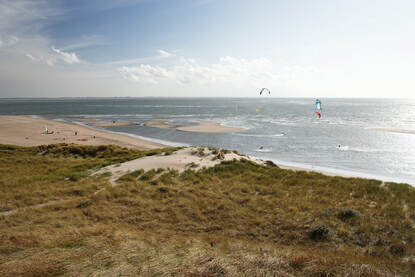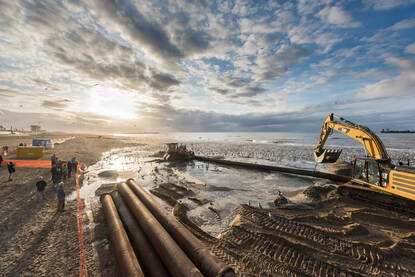The cabinet's third main ambition is: clean and safe (drinking) water, sustainable management of high-quality groundwater, and a high-quality living environment. We protect existing drinking water supplies and ensure the availability of sufficient sources for the future. High-quality water is not only of vital importance for our drinking water, but also for agriculture and nature. That is why we are committed to continually increase the quality of our water.
“Nature must be considered an important preventive measure: by investing in nature and water quality, you promote the health and well-being of the people who interact with it.”
Jos de Bijl (Bureau Stroming)
Clean and healthy water
It is important to prevent the build-up of pollution in groundwater or surface water. That is why we are working on reducing discharges and the spread of emerging substances, for example through the PFAS in water Action Programme.
In 2021, the cabinet already expanded the deposit system to small bottles in order to reduce the amount of plastic in the environment. In addition, the government is taking many measures for a more natural design of the major waters in order to achieve the goals of the Water Framework Directive (WFD). These measures are included in the river basin management plans 2022-2027.

Reinforcing nature and biodiversity
The main water system and the regional waters are not only connected through their waters, but also ecologically: all kinds of animal and plant species move between the water systems. The balance between land use, on the one hand, and the quality of the landscape, soil, water and air, on the other, must be improved. Only then can we achieve a clean and healthy delta with high-quality nature and achieve the water quality targets.
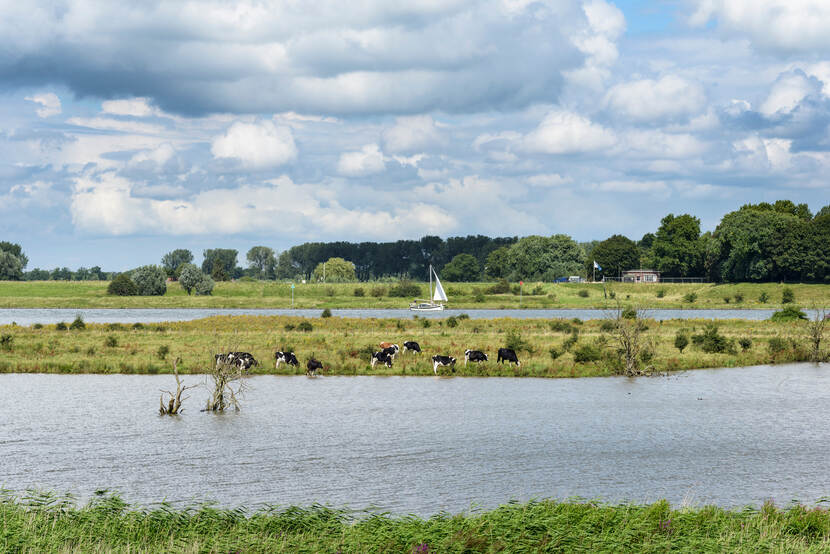
“To capture CO2 and stop soil subsidence, it is inevitable to make the transition to wet peat areas where peat comes back to life again. This offers opportunities for new revenue models and a higher quality of the landscape.”
Jos de Bijl (Bureau Stroming)
The Nature programme and the Biodiversity Reinforcement programme contain measures to enhance water nature. The vision for circular agriculture will contribute to improving the quality of ground and surface water. The national government also wants to focus more on natural processes and less on specific species and habitats. This requires resilient soil and water systems and good water quality. The approach to soil subsidence is also vitally important for water management. The National Landscape Strategy Development programme (ONS Landschap) supports a landscape-inclusive approach to water challenges in order to give the landscape a more prominent role.
Management by Rijkswaterstaat
In 2022-2027, Rijkswaterstaat will focus on implementing the 3rd phase of WFD measures, drawing up and implementing Natura 2000 management plans and exploring and implementing PAGW measures. In addition, more attention will be devoted to emerging substances and substances of very high concern, with respect to both licensing and knowledge development.
Together with regional water managers, Rijkswaterstaat will explore the effects of groundwater on national waters, which will also consider whether the national waters can contribute to the desired groundwater situation of the regional groundwater system. One of our aims is to combat the consequences of drought and pluvial flooding.

